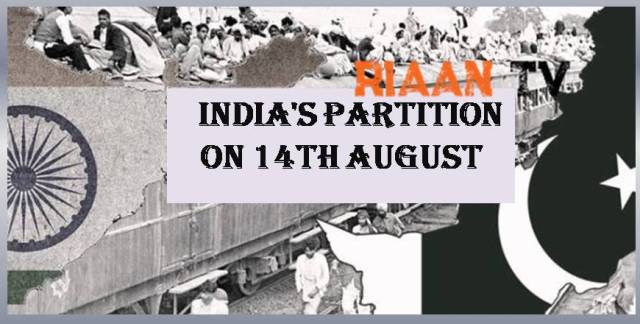India’s partition on 14th August 1947 marks a significant turning point in the nation’s history. This historic event witnessed the birth of two independent nations, India and Pakistan, and shaped the destinies of millions of people. The partition was not only a political and geographical division but also had profound social, cultural, and economic implications. In this article, we delve into the history behind India’s partition on 14th August, taking a closer look at the events, causes, and long-lasting impact it had on both countries.
The Colonial Legacy and British Divide-and-Rule Policy:
To understand the roots of India’s partition, it is essential to acknowledge the colonial legacy that the British Raj left behind. The divide-and-rule policy pursued by the British administration systematically exacerbated tensions between Hindus and Muslims throughout India, ultimately leading to calls for separate Muslim-majority regions.
The Demand for a Separate Nation:
The All India Muslim League, under the leadership of Muhammad Ali Jinnah, demanded the creation of a separate nation for Muslims known as Pakistan. The demand gained momentum in the 1940 Lahore Resolution, leading to growing communal tensions between Hindus and Muslims.
Mountbatten’s Plan and the Radcliffe Line:
As the British Raj began to disintegrate, Lord Mountbatten, the last Viceroy of India, proposed a plan to partition the country into two dominions based on religious demographics. The Radcliffe Line was drawn, demarcating the boundaries between India and Pakistan. However, the process was rushed and led to significant confusion and violence during the mass migration that followed.
Mass Migrations and Human Tragedies:
The partition resulted in one of the largest mass migrations in history, with millions of Hindus, Muslims, and Sikhs forced to leave their homes behind, fearing for their safety. The violence and bloodshed that accompanied the migration are remembered as one of the darkest chapters in both India and Pakistan’s history.
Legacy and Long-lasting Impact:
India’s partition had far-reaching consequences that continue to shape both nations today. From the communal divide to unresolved territorial disputes, the partition left a lasting impact on the social, political, and economic fabric of the region.
India’s partition on 14th August 1947 remains a deeply significant event in history, with its repercussions felt to this day. It serves as a reminder of the challenges faced when dividing a nation along religious lines, the immense human tragedy that ensued, and the ongoing struggles for peace, harmony, and coexistence. Understanding the history and legacy of India’s partition is crucial for fostering empathy, dialogue, and learning from the past as we aspire towards a better future.

